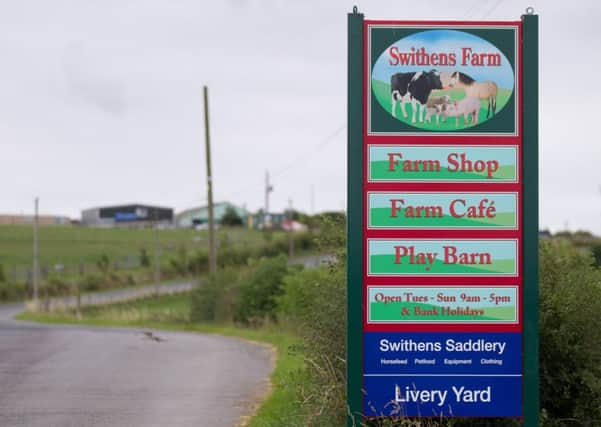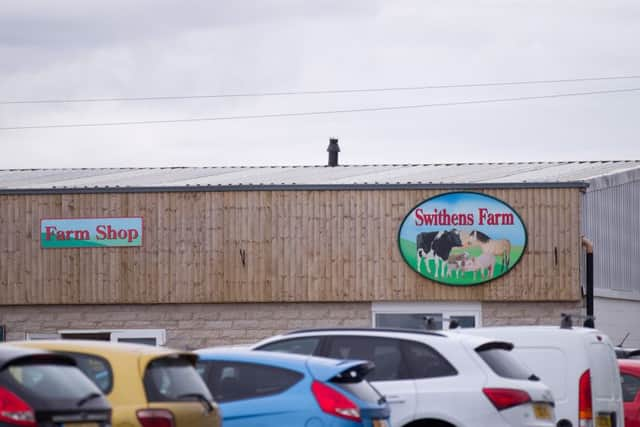Dozens taken ill with sickness bug at Leeds children's farm: Updated


Public health experts have launched an investigation into the outbreak, which has been linked to Swithens Farm, in Rothwell, Leeds.
A total of 29 cases of cryptosporidiosis, a disease caused by a microscopic parasite resistant to chlorination which causes sickness and diarrhoea, have so far been confirmed.
Advertisement
Hide AdAdvertisement
Hide AdTwo cases of bacterial infection E.coli 0157, which can cause severe stomach pain, bloody diarrhoea and can affect kidney function, have also been reported. All those affected visited Swithens Farm from the beginning of March onwards.


Public Health England (PHE) has been drafted in to deal with the issue and the owners of the farm voluntarily closed the facility for a period after the outbreak became apparent.
The petting farm has since reopened and its owners say “every effort is being taken to ensure that visitors are not put at risk”.
Dr Mike Gent, consultant in communicable disease control with Public Health England, said: “We are working closely with Leeds City Council and Animal and Plant Health Agency to investigate further and to advise the premises concerned.
Advertisement
Hide AdAdvertisement
Hide Ad“At the request of Environmental Health Services the premises closed voluntarily. This was followed up with enforcement action to prohibit reopening until a number of matters had been addressed.”


The infections can be the result of contact with animals carrying germs or parasites and often peak in spring.
Cryptosporidium is a parasite that can be found in soil, water, food or on any surface that has been contaminated with human or animal faeces. Between January and May 2015 there were at least seven outbreaks of cryptosporidiosis associated with petting farms across England, affecting around 130 people. Anyone can get cryptosporidiosis but it is most common in children aged between one and five years old.
Dr Gent said that contact with farm animals carries a risk of infection because of the bacteria they naturally carry.
Advertisement
Hide AdAdvertisement
Hide AdHe said: “It’s really important when visiting these sorts of attractions to wash your hands thoroughly using soap and water after you have been in contact with animals and especially before eating or drinking anything.
“People may be tempted to use hand gels and wipes during a farm visit and after touching animals but, although they remove visible dirt and contamination, they may not be effective in removing the germs found on farms.”
Swithens Farm has been run by the Broadhead family for more than 20 years and offers families the chance to feed and pet animals as well as eat and buy local produce. It features a farm shop, cafe, play barn and open farm.
Ian and Angela Broadhead, who run Swithens Farm, have released a statement explaining that they are working with the council after becoming aware that “there have been some children with upset stomachs”.
They said: “The farm is open to the public and every effort is being taken to ensure that visitors are not put at risk.”